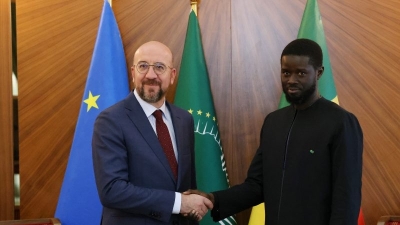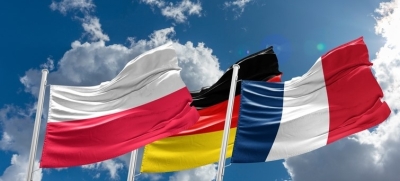Member states ask for flexibility, regulators’ independence in new media law

The independence and flexibility of media regulators, data protection and non-compliance measures are the focus of several member states’ comments on the European Media Freedom Act proposal.
In a document dated 2 February and seen by EURACTIV, delegations from seven member states – Germany, Finland, Ireland, Hungary, Latvia, Lithuania and the Netherlands – outlined their feedback on the proposal to the Council’s Audiovisual and Media Working Party.
The points raised span areas including the independence of the new European Board for Media Services, which the regulation will create to replace the existing European Regulators Group for Audiovisual Media Services (ERGA), data protection, spyware and ensuring that compliance with the regulation will be feasible for national authorities with fewer resources.
Released in September, the Media Freedom Act proposal is intended to increase the transparency of media ownership within the EU and introduce safeguards on editorial independence and media pluralism.
However, the initiative has not avoided pushbacks, particularly given that media regulation has traditionally been seen as a national competence.
Commission releases Media Freedom Act proposal, to mixed reactions
The Commission has released its proposal for a Media Freedom Act, to mixed reaction from civil society and media sector organisations.
Flexibility
One of the most widely-raised issues was allowing sufficient flexibility for smaller and less-resourced national authorities to comply.
Germany, Ireland, Finland, Latvia and the Netherlands all noted that the set timeframes included in certain provisions of the text, for example, 14 or 30 days to undertake tasks such as informing other states’ authorities of actions they plan to take in response to cross-border requests, could disadvantage certain states.
This “would take better account of the special requirements of smaller supervisory authorities”, noted Germany, a country with a federal system with 14 media authorities at the state level.
It was, therefore, widely called for that response times be made flexible and that the Board be given the responsibility of defining deadlines. Latvia recommended that the differing wording around timeframes within the text should be aligned as much as possible if this change was not made.
Independence
Ensuring the independence of oversight authorities is also a repeated theme throughout the feedback. Germany and the Netherlands called for various references to the Board acting “in agreement with” the Commission to be removed to provide more distance between the two bodies.
In the article that deals with structured cooperation between regulatory authorities, for instance, Germany says the Commission should not be involved in issuing opinions in situations where a dispute arises between two national authorities to preserve the independence of the Board.
Similarly, in the section of the legislation that deals with the Board’s structure, the Netherlands argues for the removal of a measure allowing a Commission representative to participate in all of its meetings or activities, albeit without voting rights, as a means of ensuring the body’s ability to work independently and meeting without a Commission presence.
Also raised by certain states is the importance of ensuring the independence of national regulators, or rather to avoid interference on this sensitive national competence.
Hungary is particularly vocal in its defence of member state competence on media issues, calling for removing references to the Board promoting best practices, for instance, on the application of national rules, arguing that the watchdog should oversee the enforcement of EU-level measures only.
Hungary calls for greater clarification in general of the responsibility of oversight authorities handling cross-border complaints, adding that it “[does] not support the creation of a European media authority that – as opposed to ERGA – is positioned above the national regulatory authorities and not parallel to them.”
Ireland, Latvia and Hungary push for the inclusion of wording to specify that opinions issued by the board are not legally binding.
Commission to present new media law, leaving ownership unaddressed
The European Media Freedom Act, due to be presented next week, will address editorial independence, media regulators, economic revenues and public service media. But the major issue of media ownership is not in the picture.
Personal Data
In its notes on the proposal, Finland stressed the importance of clarifying whether personal data will be processed during cross-border cooperation between national regulatory authorities.
Helsinki also suggested that the nature of this data and the purposes for which it is shared be specified, along with the introduction of limitations ensuring that data exchanges are limited to these circumstances.
Also touching on data protection, Lithuania made the case that it is unclear how, when following the requirements of the Act’s provisions on media service providers’ duties, data on beneficial owners will be able to be made public if the media service provider or its participant is from a protected group such as a religious community or trade union.
Given that this would be sensitive data, it is suggested that members of these organisations should perhaps not be listed publicly.
Spyware and non-compliance
Lithuania also suggests changing some of the wording related to the text’s spyware provisions, narrowing the list of people linked to media services on whom the deployment of spyware is specified as being prohibited.
Amongst the questions raised by Latvia is what happens if authorities fail to comply with cross-border requests and whether the Commission would initiate infringement proceedings in such cases.
Ireland, however, also calls for greater clarity regarding the grounds on which such requests can be legitimately refused, arguing that these are currently lacking.



